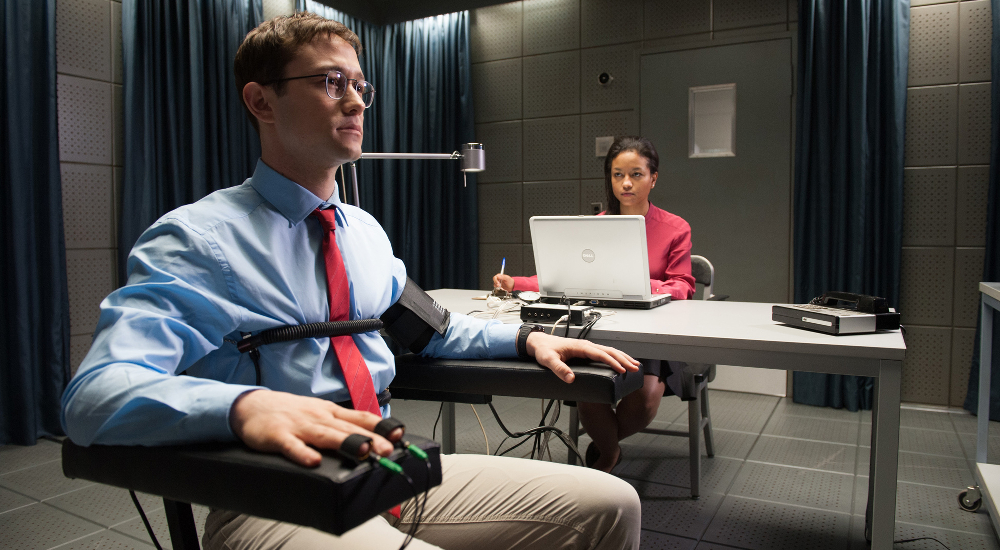“I feel like I’m made to do this.”
Joseph Gordon-Levitt delivers the performance of his career as tech genius whistleblower Edward Snowden is Oliver Stone’s Snowden. Sadly the same can’t be said for the film as a whole. Unable to gather the necessary information to transform cyber surveillance into a groundbreaking thriller, the film itself is sluggish and uneven as it becomes consumed in the facts.
Gordon-Levitt disappears into the title role, embracing the quirks and tendencies that define the real life character as he embodies the awkward nerdy tech genius who takes a stand against the US government. Knowing that the best-case scenario would involve him becoming a fugitive from the most powerful government in the world, Snowden opts to act, shining a light on the unknown and educating the world on the reality that many felt was mere myth.
The young actor deserves the praise, even if the film itself does not.
Snowden’s biggest misstep lies in Stone’s presentation of the facts. Struggling to make the tech jargon sexy enough for the common viewer, Stone opts to drive home his point, spending countless screen time overemphasizing Snowden as a patriot; unapologetically driving home the fact that he is doing everything for the sake of his fellow Americans. The point is understood early on; however, the overkill makes you question just how patriotic our “hero” truly is.
Melissa Leo, Zachary Quinto and Tom Wilkinson open and close the story as journalists with whom Snowden has entrusted the documents. The film itself is told through a series of flashbacks, jumping back and forth in time as he is filmed by Leo’s Laura Poitras, a documentary filmmaker who would later use the footage to create Citizenfour, the 2015 Academy Award winner.
It is through these scenes, the four of them sitting in a hotel room anxious with every phone ring, that Stone attempts to catapult the film from mere drama to espionage thriller. But Snowden’s story is fairly well known. Having occurred during the age of social media, the details are fairly fuzzy, but most know the broader points. And sadly, even with the personal anecdotes that explain his romantic struggles with girlfriend Lindsay Mills (played by Shailene Woodley), the film never digs deep enough to add a layer of complexity.
Still, Snowden deserves to be seen, if for no other reason than the information it presents. Explaining the events that lead the country’s most notorious whistleblower to be stranded in a terminal in Moscow, the film reopens conversation. Whether it successfully educates its viewers is an entirely different point; though that might be for the best as the film opens with a rather unique card that boldly states that the film is a dramatized retelling of actual events, a strong detour from the usual verbiage.
The final scene shows us the real Edward Snowden. While the effect provides an interesting final moment that helps to drive home the performance of Gordon-Levitt, it lasts just long enough to resonate as a gimmick. Stone uses his main subject’s platform to further his film, but unfortunately doesn’t appear to wholly understand it enough to fully tell his story.
*This review was originally posted as part of our 2016 Toronto International Film Festival coverage.

